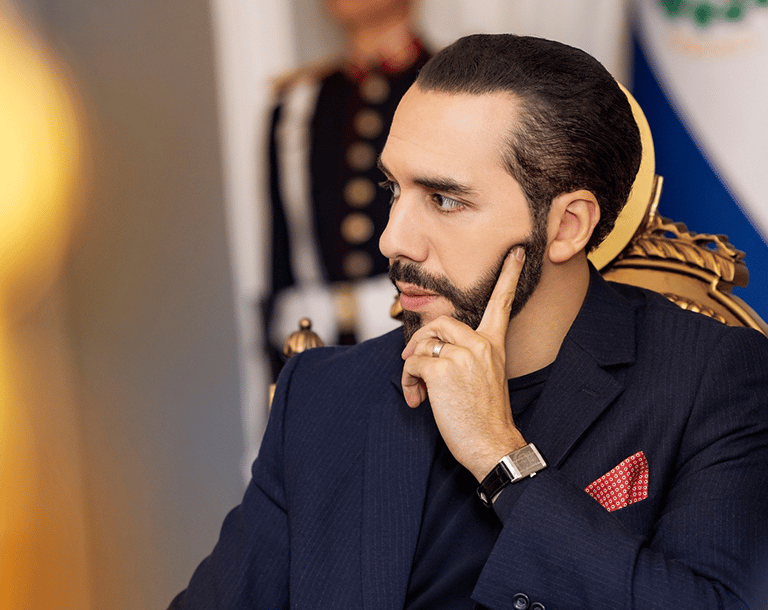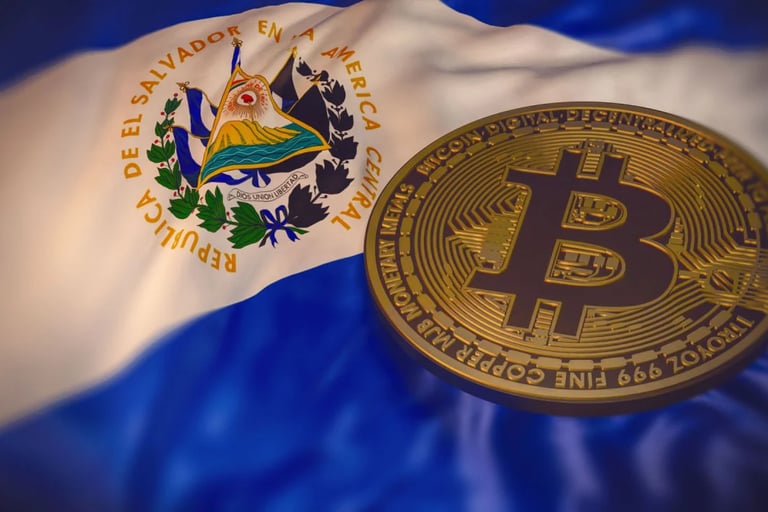

Nayib Bukele and His Vision of El Salvador
Nayib Bukele, the dynamic leader of El Salvador, is reshaping the country's future with his visionary approach. From innovative technology initiatives to social reforms, Bukele's leadership is redefining the nation's trajectory.
EL SALVADOR
Daniel Cádiz
9/9/20233 min read
Bukele is hungry for deals like the one recently inked with Google. His self-conception is that of a pragmatic, tech-savvy leader, hence his fondness for Bitcoin - ostensibly a bad investment for the state’s coffers, but also a masterful marketing ploy. Above all, he wishes to change his country’s gang-addled image. Tech companies will be particularly in-demand, as will hoteliers. El Salvador also has gold and iron reserves; these gain value in light of Guatemalan President-elect Bernardo Arévalo’s proposed moratorium on new mining concessions. Washington’s push for near-shoring away from China and East Asia will also drive investments in manufacturing. El Salvador’s long-term panorama is uncertain. Whilst security matters have largely been addressed, GDP growth is slated to hit 2.3% in 2023, a relatively low figure for a developing economy. Nonetheless, institutional investors have newfound trust in El Salvador. Its government bonds have returned more than 90% this year. Short-term debts have had their maturity dates extended, signalling both international confidence and government creditworthiness.
After some scuffles with the State Department, it also appears that a modus vivendi has been achieved; in fact the Peace Corps have announced their return to the country. This is despite Bukele’s perceived proximity to Beijing. El Salvador’s economy is dollarised, which removes currency risk, but this also means it is more expensive than its neighbours, partially dwindling the appeal of outsourcing. For all its failings, its government has nonetheless proved relatively competent and is almost assured a further five years in office. Yet El Salvador remains poor and undeveloped. The persistence of migration trends serves as proof of this. Bukele has proved adept at marketing his country, but the fact remains that institutional guarantees are somewhat deficient and the country lags in ease of doing business figures.
El Salvador will hold general elections next February, with President Nayib Bukele vying for re-election, which has for decades been taboo in the country. Since coming to power in 2019, the president has been accused of eccentric authoritarianism; in the interest of combating crime, he has forced through military funding through the legislature and all but suspended habeas corpus. Bukele’s immediate aim is re-election, which is almost guaranteed; his candidacy has been registered. The opposition - left-wing FMLN and centre-right ARENA - are in shambles. The governing coalition, led by Bukele’s New Ideas and a handful of minor parties, will likely obtain a supermajority in the Legislative Assembly. Bukele has many fanciful dreams, Central American re-unification being perhaps the chimerical. His objective is to legitimise his rule via improvements in Salvadorans’ finances and security. The latter he has achieved, albeit at great cost, both in terms of personal rights and defence and law enforcement funding. The former is rather shaky, but he has secured commitments from Google Cloud to establish itself in the country - a first for Central America.
Opposition forces, which controlled the presidency from 1989 until Bukele’s victory in 2019, have failed to recover from the shock of defeat and are expected to make a poor showing in February’s elections. Recently, Armando Rodríguez, an ARENA congressman, was detained on corruption charges. Bukele has shielded himself from accusations of trumped up charges by also supporting the indictment of corrupt members of his own party. The president is, by most metrics, the world’s most popular head of state, with approval ratings ranging from the mid-80s to the low-90s. There will be few challenges to his remaining in power. Indeed, the Supreme Court has already re-interpreted the Constitution to circumvent the prohibition on re-election. It is unlikely that the Court’s pro-Bukele justices would permit the issue to reach their docket once again. Stability can be expected; El Salvador will remain as it has been since 2019. In the short term, there will be a greater consolidation of power. After February, the likeliest scenario is that Bukele will be granted leave to reform the state as he sees fit. Amidst this institutional entrenchment, it is difficult to foresee a resurgence of the opposition.






